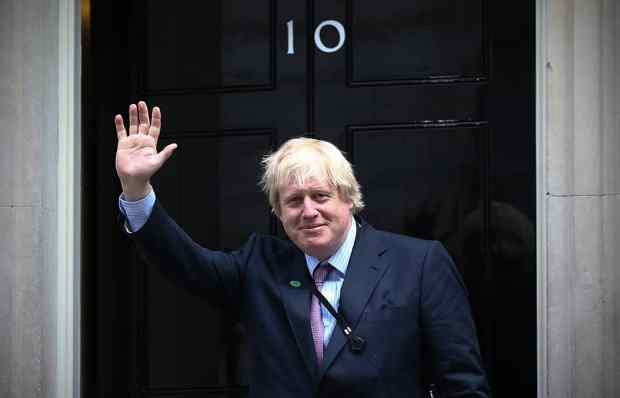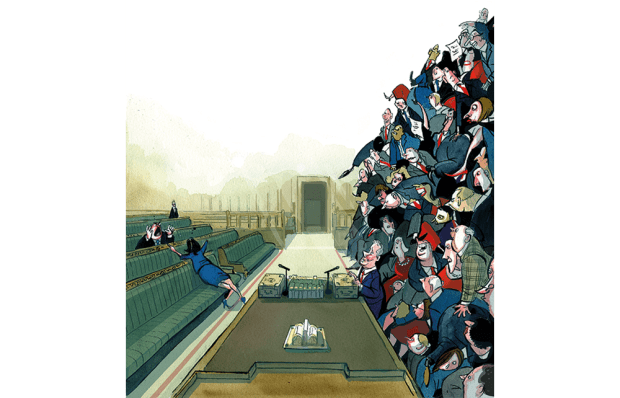Friends like these…
Sir: I much admire Peter Frankopan as a historian but his article ‘Is Putin winning?’ (4 March) is misleading and plain wrong. He argues that the vote at the UN on Ukraine on 23 February demonstrated that Russia’s strategy is winning new friends in Africa, Central and South America, and Asia; friends who are refusing to vote with the US and the West, and are supporting Russia. An inspection of the actual figures at the UN vote shows this claim to be foolish: 24 African states condemned Putin’s Russia. Only two, Eritrea and Mali, supported Putin. In South and Central America, 16 states condemned Putin. Only Nicaragua supported him. In Asia, 31 states condemned Russia. Only North Korea and Syria supported Putin.
Professor Frankopan likes to refer to the 32 countries, mostly from the developing world, which abstained, including India and South Africa. Is he not aware that there is nothing new in this? The Non-Aligned Movement, which includes over a hundred states, during the Cold War always refused to support either the West or Moscow and abstained at the UN. When the Soviet Union invaded Afghanistan in 1979, 26 Third World countries refused to condemn Russia and abstained from the vote on the grounds that this was not their war. Nothing has changed.
Even China, Putin’s only serious friend, has refused to support Moscow at the UN and abstained. So much for Putin’s diplomatic success.
Sir Malcolm Rifkind
London
Misplaced trust
Sir: As someone who was instinctively opposed to the lockdowns and all the other instruments in public health’s repressive armoury, I naturally find myself broadly in sympathy with your leading article (‘Anatomy of a scandal’, 4 March). Yet by highlighting the role of Isabel Oakeshott in betraying to the press material to which she had access only in confidence, the article is disturbing to those who believe that trust should be treasured as among the highest of public and private values.
The obvious resolution is to focus on the folly of the former health secretary. What exactly did he expect when he handed over a trove of front-page leads to someone who was not only a well-known investigative journalist, but also a lacerating critic of lockdown and the government’s Covid policy more widely?
Richard Marsh
Kineton, Warwickshire
Thank you, Jeremy
Sir: Jeremy Clarke (Low life, 4 March) worries he might be ‘overdoing the dying bit’ and that some might be tiring of him ‘banging on’ about his terminal cancer. For this reader, every column of his has been a gem: unpredictable, thought-provoking, full of wit and often a touch of heartbreak. Low life is the first page I turn to.
The column kept me going through my younger brother’s last months before he died of pancreatic cancer last summer and it continues to support me in my loss. Bonne chance,Jeremy, and merci for your words and opinions, which have always mattered to me.
Alison Walsh
Lymington, Hampshire
Unity’s solution
Sir: The difference between the cases of Unity Mitford and Shamima Begum isn’t that one was allowed to return home and one was not (Arts, 4 March). Unity understood that she was conflicted between her idolatry of Adolf Hitler and his declaration of war on her homeland. She did not seek to return to the UK, nor did she assist the enemy, but instead she attempted suicide. The consequences of that botched attempt meant that after it she was no longer a danger to anyone, and so it was agreed by the authorities that she would be repatriated and handed over to her family’s care.
It’s also worth noting that Unity’s sister Lady Diana Mosley was sent to prison as representing a danger to the state because of her views, demonstrating that this family didn’t get special treatment.
Philip Bonsell
Redhill, Nottingham
Keep your discs
Sir: Toby Young’s DVD defenestration is poorly timed (‘Notes on… DVDs’, 4 March). Fawlty Towers is no longer available on any streaming service. Nor is Polanski’s film about intolerance, J’Accuse. Moreover, Lucas’s tinkering with Star Wars: A New Hope means the tightly edited original is now only available to disc fans. To protect yourself from censors, buy DVDs.
Keith Johnston
London
Not how but why
Sir: Richard Dawkins is right to object to origin myths being taught as equivalents alongside the scientific theories of evolution and big-bang cosmology in New Zealand (Diary, 4 March). Science seeks to answer the ‘how’ questions of our universe while origin myths explore the ‘why’ of existence and humankind’s place in the world. They belong in the religious studies curriculum.
In addition, science is not a ‘western European invention’, since its earliest roots can be traced to Ancient Egypt and Mesopotamia in around 3000 to 1200 bce.
Christine Crossley (religious studies teacher)
Chipping Norton, Oxon
Nice to see yew
Sir: In the review of Jared Farmer’s book Elderflora, reference is made to yew trees being planted in churchyards to ‘mop up decay’ (Books, 25 February). In the garden of my previous home stood an ancient yew, perhaps 800 years old. Lore had it that the reason they were grown in walled churchyards was that, being highly poisonous, they were best cultivated in a stockproof environment. Yew wood was used for making longbows, the quintessential English weapon of war. Thus it was that space was shared between our weapons factories and our dead.
Anthony D.M. Peters
Great Rollright, Oxon
Got something to add? Join the discussion and comment below.
Get 10 issues for just $10
Subscribe to The Spectator Australia today for the next 10 magazine issues, plus full online access, for just $10.
You might disagree with half of it, but you’ll enjoy reading all of it. Try your first month for free, then just $2 a week for the remainder of your first year.














Comments
Don't miss out
Join the conversation with other Spectator Australia readers. Subscribe to leave a comment.
SUBSCRIBEAlready a subscriber? Log in